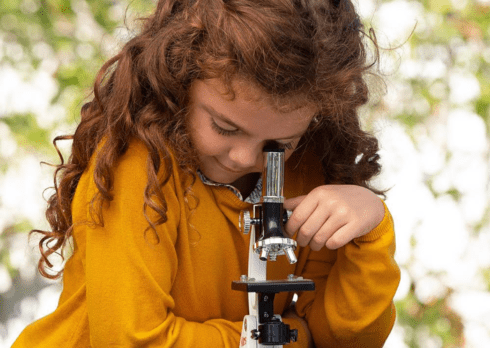
Amenorrhea: Its Side Effects and What You Can Do About It
Menstruation is an irrevocable occurrence in a woman’s body which starts around puberty and may last until the age of 50 before, the menopausal period which is a time in a woman’s life when menstruation ends. If your menstrual period stops during puberty, then there might be health issues lurking around the body. Although this is not a disease, this still poses a threat and might be a sign of a health problem. Menstruation is part of the natural order of a woman’s body, so how do you treat this kind of condition? Today’s guest post shares details about amenorrhea, it’s side effects and what you can do about it.
This is a guest post by Tricia Blake.

Amenorrhea: It’s Side Effects and What You Can Do About It
Types of Amenorrhea
Amenorrhea basically refers to the absence of menstrual bleeding either the menstruation period never started or because it stopped abruptly. There are actually two types of amenorrhea: the primary and secondary amenorrhea which occurs in different kinds of way.
Primary amenorrhea is when menstruation bleeding does not start during puberty. According to the National Institutes of Health, if a girl’s menstruation does not start by the age of 16, then the person should go for a check-up and seek medical help.
The other type of amenorrhea is secondary amenorrhea, wherein a period starts but then it ceases to occur for three or more months with the absence of pregnancy, production of breast milk, cycle suppression using birth control pills, or menopause. Know that one missing period is not usually a sign of a health issue, although some people might ask for a pregnancy test if this happens.
What are its Effects on One’s Body?
Amenorrhea might not be a serious and threatening disease but it does not mean that it will not put your health on the line. Here are some of the side effects of not having your menstrual period normally:
Infertility
Since menstruation indicates that a woman is fertile, having amenorrhea might greatly affect a woman’s ability to reproduce. Most women who experience this condition have anovulation which is the inability to produce eggs from the ovaries. This is a critical procedure in a woman’s body since the absence of ovulation means the inability of conception.
Ovarian Cysts
Due to the ovarian imbalance because of testosterone hormones, this might lead to ovarian cysts or the Polycystic Ovarian Syndrome (PCOS). PCOS prevents the ovaries from generating mature eggs which then would form cysts. Because PCOS prevents the body from also processing insulin levels efficiently, a woman with PCOS will likely experience weight gain, hair loss, insulin resistance and is a high-risk candidates for type 2 diabetes mellitus.
Estrogen Deficiency
Amenorrhea is linked with the decrease of estrogen production and an increase of testosterone. Therefore, women might experience physical changes such as excess facial hair and a decrease in breast size. Additionally, estrogen deficiency directly affects bone density which would decrease as bone loss and fractures become prevalent due to the lengthened suppression of the reproductive system.
Treatment
The treatment depends on the type of amenorrhea that you have and its causes. Primary amenorrhea may start with a watchful waiting which depends on the person’s age and results in the ovary function test that was taken. Also, if there is a history in the family of late menstruation, then it might be taken into consideration before treatment.
If you have genetic or are having any physical problem which involves the reproductive organs, surgery might be suggested and deemed necessary but this won’t guarantee that a normal menstrual cycle will occur.
Secondary amenorrhea will depend on its underlying cause. There are lots of factors as to why one experiences the secondary amenorrhea, and here are some of its causes:
Lifestyle Factors
You may not be having the right nutritional diet and have been exercising excessively. Thus, you will be recommended a change in your exercise plan and a healthy diet to stabilize your menstrual monthly cycle.
Stress
Stress creates a ripple effect on your body and causes various serious diseases and conditions in your body. If emotional and mental stress is found as one of the problems, then a counseling session might be recommended and may be of help.
Premature Ovary Failure
HRT or Hormone Replacement Therapy might help your hormones function well enough for your menstruation cycle to return.
Underactive Thyroid
If your menstruation cycle stops due to an underactive thyroid then the doctor may prescribe treatment involving a thyroid hormone which is called thyroxine.
Takeaway
The absence of a menstruation cycle can occur for a number of reasons and it does not necessarily mean that a woman is infertile and that there’s no possibility to conceive if you have an amenorrhea. However, it is important that one always seek medical advice if this happens to you.
Guest post by Tricia Blake

Tricia Blake is a freelance creative writer who collaborates with various healthy lifestyle enthusiasts to share her experiences through the written word. She especially loves writing about health and the various ways to become healthy. Tricia worked as a content marketing specialist in her formal life but recently left to pursue a full-time freelance career.
Tricia recommends seeking medical advice if amenorrhea happens to you and take better care of your menstruation days by becoming wary of what you use during your period such as menstrual cups which should be comfortable like daisy cup.
You May Also Like

3 Ways Medical Apps are Influencing Healthcare and App Development
August 11, 2016
Baby Gear Essentials: What You Can Live Without!
June 20, 2018



